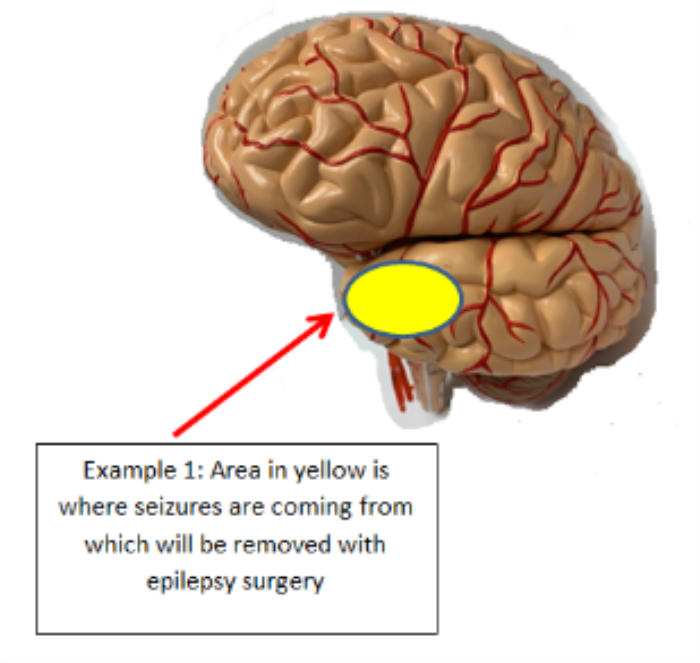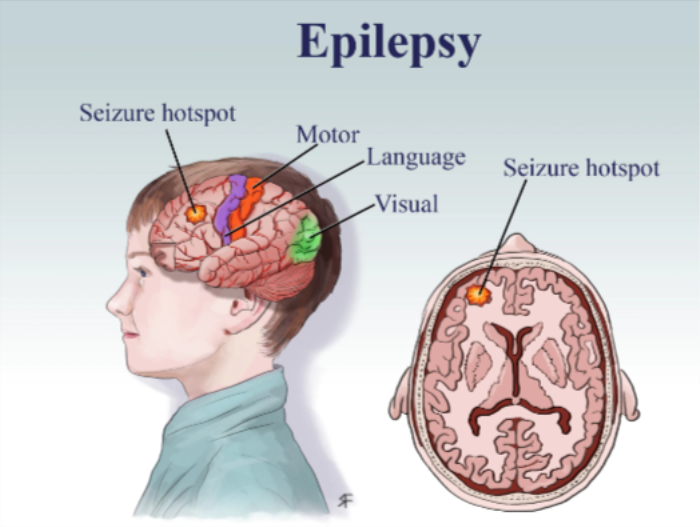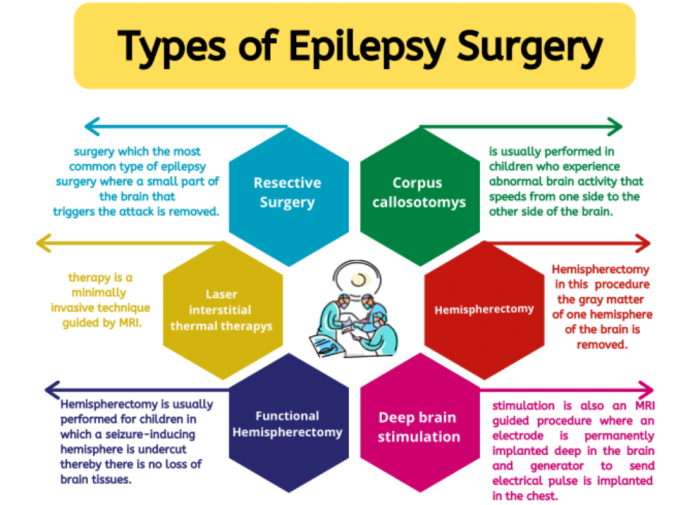Epilepsy surgery in India offers advanced treatments and innovative surgical techniques for managing epilepsy that is unresponsive to medication. With leading hospitals and expert neurosurgeons, India provides world-class care and cost-effective solutions for both domestic and international patients seeking effective epilepsy surgery.
Medical disclaimer: This content is for general awareness and does not replace a doctor’s consultation. For diagnosis or treatment decisions, consult a qualified specialist.
Understanding Epilepsy Surgery
What is Epilepsy Surgery and How Does it Work?
Epilepsy surgery is a medical procedure aimed at controlling seizures in individuals whose epilepsy is not manageable through medication. The surgery involves identifying and removing the area of the brain where seizures originate or interrupting the pathways through which seizures spread.
During epilepsy surgery, neurosurgeons may use techniques such as resective surgery, laser interstitial thermal therapy (LITT), or neurostimulation. The choice of technique depends on the patient's specific condition, seizure focus, and overall health. Advanced imaging and precise surgical tools help ensure successful outcomes and improved quality of life.

When is Epilepsy Surgery Necessary?
Epilepsy surgery is necessary when patients experience frequent, disabling seizures that do not respond to anti-seizure medications. Surgery is considered when the seizures significantly impair daily life and when a specific area of seizure origin can be identified in the brain.

Different Types of Epilepsy Surgeries
Different types of epilepsy surgeries include resective surgery, which involves removing the part of the brain where seizures originate, and vagus nerve stimulation (VNS), which reduces seizure frequency through nerve stimulation. Each type is tailored to the patient's specific seizure pattern and neurological condition.

The Epilepsy Surgery Procedure
Pre-Surgery Evaluation Process
The pre-surgery evaluation process for epilepsy surgery involves an extensive assessment including medical history review, neurological exams, and advanced imaging techniques such as MRI, PET scans, or electroencephalogram (EEG) monitoring. This thorough evaluation helps determine the best surgical approach and increases the likelihood of successful outcomes.
Choosing the Right Type of Epilepsy Surgery
Choosing the right type of epilepsy surgery depends on the location of the seizure focus, the type of seizures, and the patient's overall health. Surgeons analyze these factors along with diagnostic results to recommend the most effective surgical method for optimal seizure control and recovery.
Detailed Surgical Procedure for Epilepsy Surgery
The detailed surgical procedure for epilepsy surgery involves anesthesia, followed by making an incision to access the brain. Surgeons then perform the necessary intervention, such as resection or stimulation, using specialized tools. The procedure concludes with closing the incision and closely monitoring the patient during recovery.
Post-Surgery Care and Recovery
Post-surgery care for epilepsy surgery includes pain management, anti-seizure medications, and gradual reintegration into daily activities. Regular follow-up appointments are crucial to monitor the patient’s neurological status and adjust the treatment plan for optimal recovery and seizure control.
Top Hospitals for Epilepsy Surgery in India
Leading hospitals for epilepsy surgery in India include AIIMS Delhi, National Institute of Mental Health and Neurosciences (NIMHANS) Bangalore, Apollo Hospitals Chennai, Fortis Memorial Research Institute Gurgaon, and Kokilaben Dhirubhai Ambani Hospital Mumbai. These institutions are renowned for their advanced neurological care and experienced neurosurgeons.
Epilepsy Surgery Doctors in India
India boasts some of the world’s top epilepsy surgery specialists, including Dr. Sharan Srinivasan, Dr. Santosh Kumar, and Dr. Sandeep Vaishya, who are renowned for their expertise in neurosurgery and compassionate patient care. These specialists, practicing at leading hospitals like AIIMS Delhi, Medanta, and Fortis Hospital, offer advanced surgical techniques and innovative treatments for epilepsy, providing hope and improved quality of life for patients.
Success Rates and Survival Statistics for Epilepsy Surgery in India
Success rates for epilepsy surgery in India are high, with many hospitals reporting significant improvement or complete seizure control in over 70-80% of cases. These positive outcomes are attributed to advanced surgical techniques, thorough pre-surgery evaluations, and the expertise of skilled medical professionals.
Legal and Ethical Considerations for Epilepsy Surgery in India
Legal and ethical considerations for epilepsy surgery in India include ensuring informed consent, protecting patient confidentiality, and adhering to medical regulations. Hospitals must follow ethical practices, such as providing transparent information about the risks and benefits, and ensuring that all procedures are performed by qualified professionals.
Cost of Epilepsy Surgery in India
The cost of epilepsy surgery in India varies depending on the type of procedure and hospital, generally ranging from ₹3,00,000 to ₹10,00,000. Factors such as the complexity of the surgery and hospital facilities can influence the final cost, making India a cost-effective option for high-quality epilepsy treatment.
Explore a detailed breakdown of epilepsy surgery cost in India by visiting our in-depth guide epilepsy surgery cost in India.
Preparing for Epilepsy Surgery
Lifestyle Changes Before Epilepsy Surgery
Before epilepsy surgery, patients may need to make lifestyle changes such as avoiding seizure triggers, following a balanced diet, and ensuring adequate rest. It is also important to adhere to any pre-surgery guidelines provided by the healthcare team to optimize surgical outcomes.
Medications and Treatments Required for Epilepsy Surgery Patients
Patients undergoing epilepsy surgery typically require ongoing anti-seizure medications before and after surgery. Post-surgery, medications may also include pain relievers and neurostimulants, along with physical therapy to aid in overall recovery and neurological rehabilitation.
Importance of Support Systems and Counseling for Epilepsy Surgery Patients
Support systems and counseling are vital for epilepsy surgery patients, offering emotional support, stress management, and assistance in coping with recovery challenges. A strong support network and access to professional counseling can significantly enhance recovery and improve mental well-being.
Life After Epilepsy Surgery
Recovery Process After Epilepsy Surgery
The recovery process after epilepsy surgery involves a combination of rest, medication adherence, and gradual return to normal activities. Patients should follow their surgeon’s rehabilitation plan, manage any post-surgical symptoms, and attend regular follow-up appointments to monitor progress and adjust treatments as needed.
Long-term Care and Monitoring After Epilepsy Surgery
Long-term care and monitoring after epilepsy surgery include regular neurological evaluations to track seizure control, adjust medications, and address any ongoing neurological symptoms. Patients should continue to follow prescribed lifestyle modifications and attend periodic check-ups to ensure sustained seizure management and overall well-being.
Potential Risks and Complications of Epilepsy Surgery
Potential risks and complications of epilepsy surgery include infection, bleeding, changes in neurological function, and anesthesia-related complications. Careful pre-surgery evaluation and post-operative monitoring help minimize these risks and manage any complications effectively.
Latest Advancements in Epilepsy Surgery
Minimally Invasive Techniques in Epilepsy Surgery
Minimally invasive techniques in epilepsy surgery, such as laser interstitial thermal therapy (LITT), use smaller incisions and advanced imaging to target seizure foci with precision, reducing recovery time and potential complications. These techniques offer benefits like reduced post-operative discomfort and faster return to daily activities.
Use of Robotics and Navigation Systems
The use of robotics and navigation systems in epilepsy surgery enhances precision and reduces the margin of error. Robotic-assisted surgery allows for more accurate targeting of seizure foci, while navigation systems provide real-time imaging to guide the surgeon, improving outcomes and minimizing complications.
Development of Advanced Neurostimulation Devices
The development of advanced neurostimulation devices focuses on improving seizure control and patient comfort. Modern devices, such as responsive neurostimulation (RNS) systems, offer personalized therapy by detecting and responding to seizure activity in real-time, leading to better management and improved quality of life.
Frequently Asked Questions (FAQs) about Epilepsy Surgery
What is the success rate of epilepsy surgeries in India?
Success rates for epilepsy surgeries in India are generally high, with many hospitals reporting significant seizure reduction or complete seizure control in over 70-80% of cases. These outcomes are achieved through advanced surgical techniques and experienced neurosurgical teams.
What are the potential risks and complications of epilepsy surgery?
Potential risks and complications of epilepsy surgery include infection, bleeding, changes in memory or language function, and anesthesia-related complications. Pre-surgery evaluation and careful post-operative monitoring help manage these risks.
How do I find a suitable hospital for epilepsy surgery in India?
To find a suitable hospital for epilepsy surgery in India, consult with your neurologist and research top hospitals known for their epilepsy treatment programs. Consider factors such as hospital reputation, surgeon experience, and patient reviews.
What kind of post-surgery care is required after epilepsy surgery?
Post-surgery care typically involves medication management, regular neurological check-ups, and gradual return to normal activities. Adhering to the prescribed care plan is crucial for optimal recovery and seizure management.
Are epilepsy surgeries covered by insurance in India?
Some insurance plans in India do cover epilepsy surgeries, but coverage can vary based on the policy. It is advisable to check with your insurance provider for details regarding coverage and any potential out-of-pocket expenses.
Where can I find support groups for epilepsy surgery patients in India?
Support groups for epilepsy surgery patients in India can be found through hospitals, epilepsy foundations, and online communities. These groups offer valuable emotional support and information throughout the recovery process.
Discover the Best Neurosurgery Hospitals and Neurosurgeons in India
When it comes to brain and spine care, choosing the right hospital and specialist is essential. We�ve highlighted the top neurosurgery hospitals and neurosurgeons across India to ensure you receive the best care available.
Top Neurosurgery Hospitals in India
Find the leading centers for brain and spine care:
Best Neurosurgeons in India
Meet the top specialists in brain and spine surgery:
Get more indepth information on Neurology treatments and their costs.
Conclusion
Your brain and spine health deserve the best care. Explore the links above to learn more about the top neurosurgery hospitals and neurosurgeons in India.